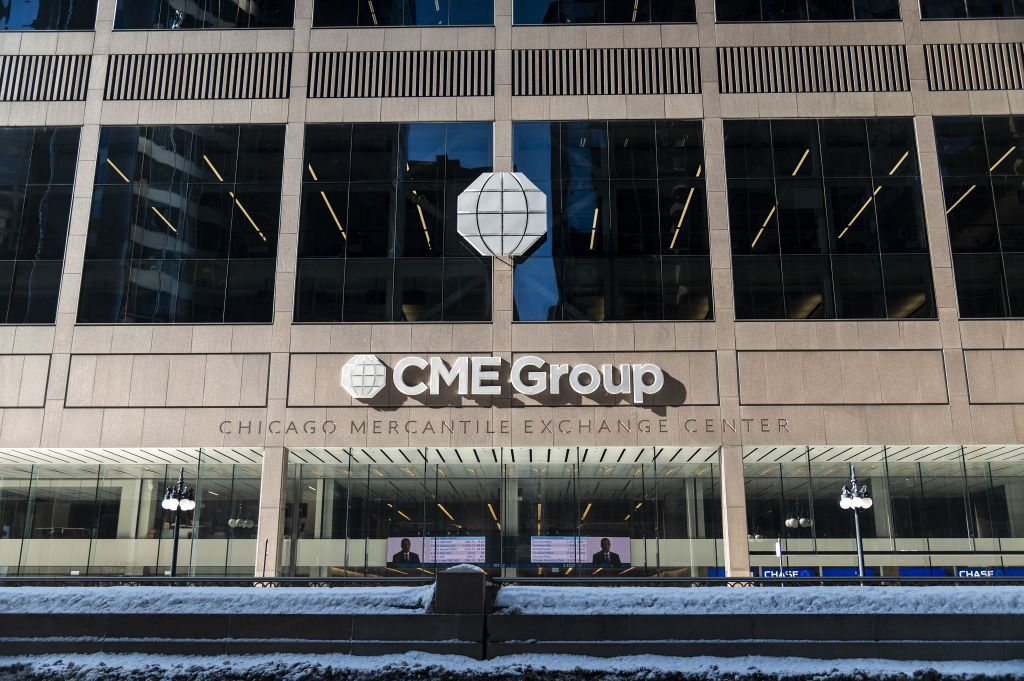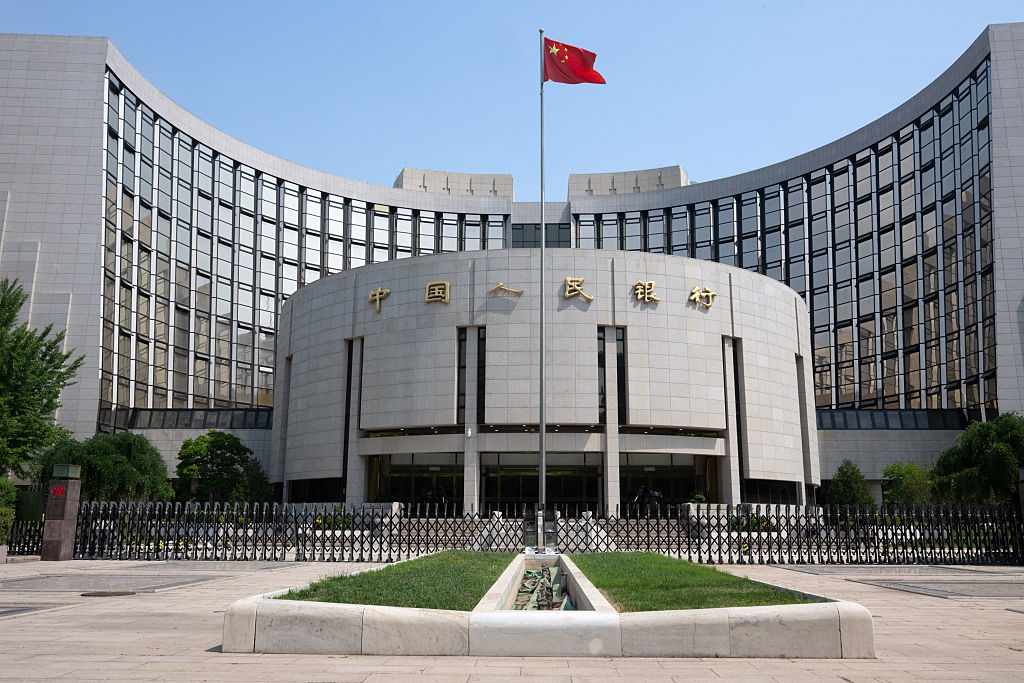What does the future hold for central bank digital currencies?
Many of the world's central banks – including the Bank of England – have expressed an interest in creating their own digital currencies. Shivani Khandekar looks at the state of play in central bank digital currencies.


Get the latest financial news, insights and expert analysis from our award-winning MoneyWeek team, to help you understand what really matters when it comes to your finances.
You are now subscribed
Your newsletter sign-up was successful
Want to add more newsletters?

Twice daily
MoneyWeek
Get the latest financial news, insights and expert analysis from our award-winning MoneyWeek team, to help you understand what really matters when it comes to your finances.

Four times a week
Look After My Bills
Sign up to our free money-saving newsletter, filled with the latest news and expert advice to help you find the best tips and deals for managing your bills. Start saving today!
State-backed digital currencies are often touted as the “future of money”, with several economies at least discussing their adoption, driven partly by concerns about competition from private cryptocurrencies.
Central bank digital currencies (CBDCs) are a virtual form of fiat currency issued and regulated by the central bank of a country. Although both cryptocurrencies and CBDCs lack physical presence, the former are decentralised and backed by blockchain technology, whereas the latter remain under the control of the central bank.
Earlier this month, the House of Lords was less than supportive of the idea that the UK should have an official digital currency. The Economic Affairs Committee cited financial stability challenges and protection of privacy as serious concerns.
MoneyWeek
Subscribe to MoneyWeek today and get your first six magazine issues absolutely FREE

Sign up to Money Morning
Don't miss the latest investment and personal finances news, market analysis, plus money-saving tips with our free twice-daily newsletter
Don't miss the latest investment and personal finances news, market analysis, plus money-saving tips with our free twice-daily newsletter
However, other countries are more open to the idea. According to the US think tank Atlantic Council, nine countries around the world including the Bahamas, Nigeria, and seven eastern Caribbean nations, have so far launched their own CBDCs with China, UAE, Sweden, Thailand in their pilot phase.
Another16 countries are in the development phase, with another 41 – including the UK – researching whether it’ll be worth it.
So, how are other economies faring so far when it comes to launching their own digital payment instruments?
India
In December last year, the Reserve Bank of India (India’s central bank) said it was mulling the introduction of a “basic” CBDC before moving to a more sophisticated version to ensure minimal impact on monetary policy. This comes as the Cryptocurrency and Regulation of Official Digital Currency Bill (2021) awaits consideration in the parliament, seeking to regulate crypto assets and possibly banning their use as a method of payment.
So while the central bank opposes the idea of owning cryptocurrencies, it is exploring its own digital currencies simultaneously. The coming week will see India’s finance minister unveiling the budget for 2022-2023 which could see the introduction of taxes on cryptocurrency trading and its regulation by the government securities body.
The US
Of the countries or regions with the four largest central banks – the US, the eurozone, Japan, and the UK, the US is furthest behind when it comes to launching a CBDC – Federal Reserve chair Jerome Powell has previously said that he would “rather do it right than do it fast”, although he has also argued that cryptocurrencies and CBDCs could co-exist, and reiterated that the US has no intention to ban cryptocurrencies.
A recent report from the Fed on a digital dollar also made it clear that while the Fed sees both pros (speedier transactions) and cons (threats to both privacy and potentially financial stability), it has no intention of launching a CBDC without the backing of US politicians.
That said, research goes on – recently, the Federal Reserve Bank of Boston announced that it was looking for a new director to steer its CBDC pilot programme, which will explore the tech, benefits, and trade-offs of a digital dollar while better understanding existing digital currency options in conjunction with researchers from MIT.
But there is clearly widespread awareness of the potential powers a CBDC could give to the central bank and the government. US politician Tom Emmer has introduced legislation that would effectively prohibit the Fed from launching its own CBDC to consumers, due to concerns that it might be used as a surveillance tool.
China
While the adoption of CBDCs seems to be moving at a sluggish pace around the globe, the Chinese central bank, the People’s Bank of China, is upping its game to launch its own digital currency (e-CNY). Reports suggest that pilot schemes for a “digital yuan” have already surpassed $1bn-worth of transactions and the latest vote of confidence came when WeChat, China’s largest messaging app service and payment platform, announced that it would accept it as a form of payment. The Chinese government meanwhile has banned private cryptocurrencies.
The bigger picture
Two main things are clear from the pace of progress so far. One is that governments and central banks are not keen to lose control over currencies to independent cryptocurrencies, and are simultaneously excited about their potential for conducting monetary policy (and in some cases, controlling the population).
So far, those who are furthest along the road to CBDCs are either those with the most interest in social control or those with weaker, non-reserve currencies. It could be argued that reserve currency countries (such the US and, to a much lesser extent, the UK) are perhaps complacent, but equally, they probably see more potential for disruption and less potential for benefit.
The other clear point is that interest is growing. Globally, 87 countries representing over 90% of global GDP are currently exploring a CBDC. In May 2020, only 35 were considering it. While the Bank of England has stated that a UK CBDC – or what’s popularly called ‘Britcoin’ – might not arrive till 2025, countries such as the Bahamas and Nigeria have already launched the Sand Dollar and e-Naira respectively.
For more on cryptocurrencies generally, here’s our guide to bitcoin.
Get the latest financial news, insights and expert analysis from our award-winning MoneyWeek team, to help you understand what really matters when it comes to your finances.
Shivani Khandekar is a writer and journalist based in London. She has worked with CNBC in India as a news producer, and also wrote on subjects ranging from governance and health to business and the economy.
As a 20-year-old undergraduate studying economics, she covered India’s union budget from the parliament, which drove her to take up journalism as a career.
She has extensively researched the Bhopal gas tragedy, writing a thesis on it for India’s former Planning Commission, the apex think-tank of the government.
She is an alumna of Delhi University and St. Xavier’s College, India, and is currently studying for an MA in Financial Journalism at City University of London.
A history buff, Shivani likes to spend her spare time exploring cities, understanding their art and culture and binge reading non-fiction books. Her work has appeared in CNBC-TV18 and Business Standard.
Follow Shivani on Twitter – @shivanik30
-
 Should you buy an active ETF?
Should you buy an active ETF?ETFs are often mischaracterised as passive products, but they can be a convenient way to add active management to your portfolio
-
 Power up your pension before 5 April – easy ways to save before the tax year end
Power up your pension before 5 April – easy ways to save before the tax year endWith the end of the tax year looming, pension savers currently have a window to review and maximise what’s going into their retirement funds – we look at how
-
 Should you sell your Affirm stock?
Should you sell your Affirm stock?Affirm, a buy-now-pay-later lender, is vulnerable to a downturn. Investors are losing their enthusiasm, says Matthew Partridge
-
 Profit from pest control with Rentokil Initial
Profit from pest control with Rentokil InitialRentokil Initial is set for global expansion and offers strong sales growth
-
 In the money: how my trading tips fared in 2025
In the money: how my trading tips fared in 2025The success of the open positions offset losses on closed ones, says Matthew Partridge
-
 Coreweave is on borrowed time
Coreweave is on borrowed timeAI infrastructure firm Coreweave is heading for trouble and is absurdly pricey, says Matthew Partridge
-
 Circle sets a new gold standard for cryptocurrencies
Circle sets a new gold standard for cryptocurrenciesCryptocurrencies have existed in a kind of financial Wild West. No longer – they are entering the mainstream, and US-listed Circle is ideally placed to benefit
-
 Profit from other investors’ trades with CME Group
Profit from other investors’ trades with CME GroupCME Group is one of the world’s largest exchanges, which gives it a significant competitive advantage
-
 Investors need to get ready for an age of uncertainty and upheaval
Investors need to get ready for an age of uncertainty and upheavalTectonic geopolitical and economic shifts are underway. Investors need to consider a range of tools when positioning portfolios to accommodate these changes
-
 How much gold does China have – and how to cash in
How much gold does China have – and how to cash inChina's gold reserves are vastly understated, says Dominic Frisby. So hold gold, overbought or not
